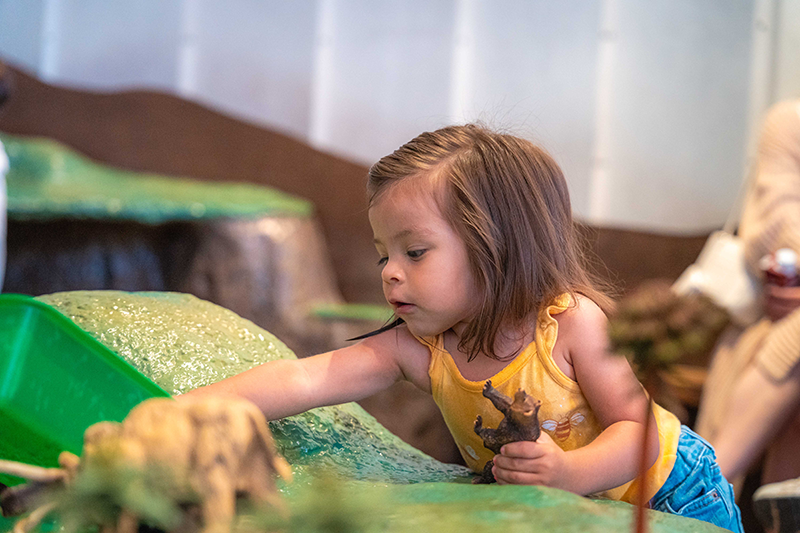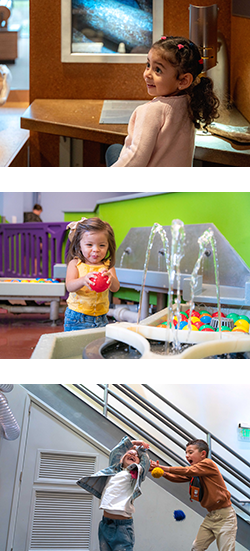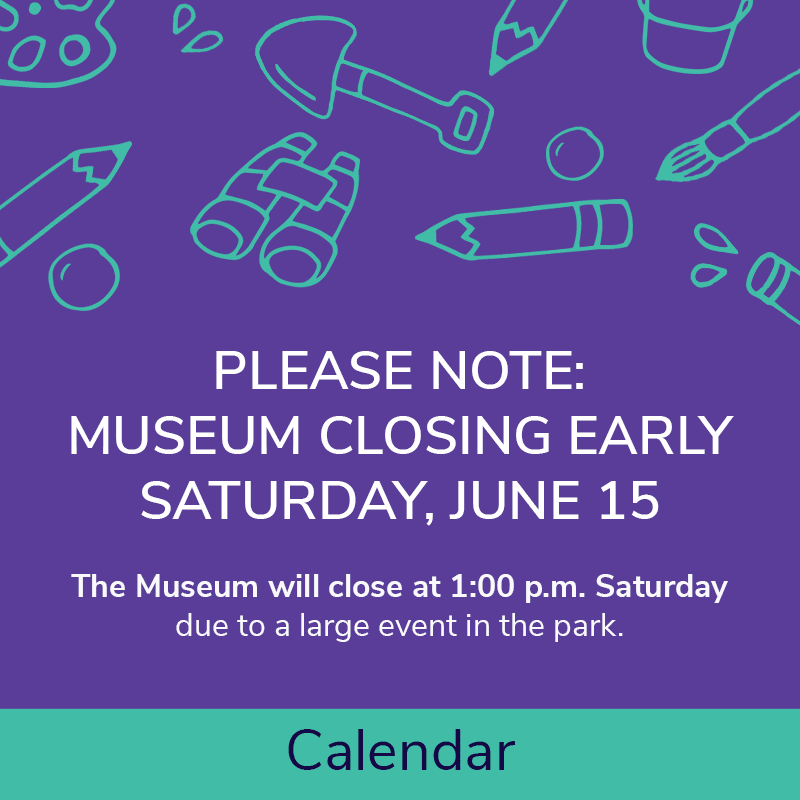
“Play gives children a chance to practice what they are learning.”
-Mister Rogers
Play encourages your child to push the limits of the world they know. Unstructured play, like interacting with exhibits and environments at Children’s Discovery Museum, where there is no prescribed way to play, is particularly important in helping children foster essential skills for making their way through life: emotional coping, problem-solving and planning. Through creative play and chances to direct their own actions, children learn to solve problems, make decisions, express ideas, and recognize boundaries.
Play is a child’s context for learning. Here are just a few examples of how children learn and develop at the Museum:

- Cognitive skills – like early math concepts (collecting, sorting, and counting) in the pretend Rainbow Market & Pizza and the basic geometry of circles, spheres and globes in the Secrets of Circles exhibit and science skills by using colorful balls to investigate how water rushes, gushes and flows in WaterWays
- Physical abilities – like leaping from tree stump to tree stump, crawling through the rope bridge or climbing up the giant hill in Bill’s Backyard
- Communications techniques and new vocabulary – like figuring out signals to let another child know you are ready for her to pull the release cord for Bowling Ball Falls to generate energy to the Main Power Panel in the Current Connections exhibit
- Social skills – like learning to play with other children at exhibits like the Gravity Well where the reward for more participation is an even greater effect
- Early literacy skills – like exploring the alphabet and engaging in storytelling in The Wonder Cabinet
- Global awareness – like seeing firsthand how food is prepared in other cultures and having a chance to role-play using special techniques and tools in the World Marketplace
And play is an important part of the relationship between a parent and a child, too. There are so many moments of fun, excitement, fascination and laughter that happen between families when engaging with the Museum’s interactive exhibits. These moments build wonderful memories and long-lasting trust and resilience.




